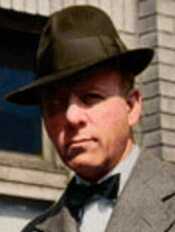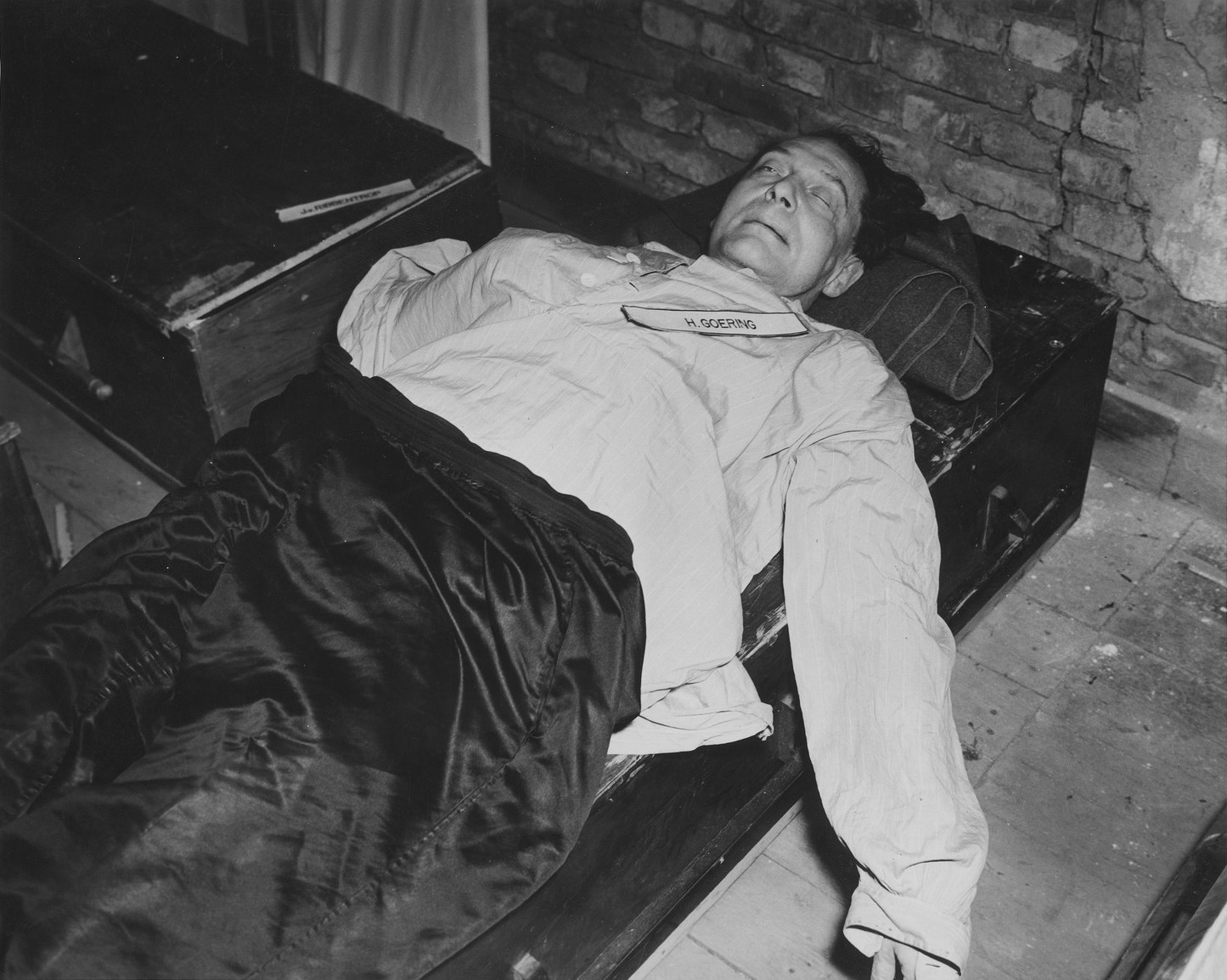The Waterbury Democrat (October 15, 1946)
11 Nazis to go to gallows tonight
Hitler’s henchmen may be hanged at midnight
Nuernberg (UP) – Hermann Goering, Joachim von Ribbentrop and nine more of Nazidom’s top war criminals neared the end of the road today, and by all signs will begin their march to the gallows at midnight (6 p.m. EST).
All of the condemned Nazis save one – Alfred Rosenberg, the chief Nazi ideologist – were reported reading the Bible and seeking spiritual solace as their last hours ticked away.
The twilight of the self-aggrandized Nazi “gods” found them obscured by a curtain of military secrecy comparable to that flung over the greatest events of the war.
May last three hours
Glimmers of information through the official fog indicated that the execution of Adolf Hitler’s 11 henchmen would begin at midnight and last three hours, and that the bodies would be buried secretly or perhaps cremated – how, when or where no one would say.
Officials said that the Nazis did not know officially that this was their last day before they were to pay on the scaffold for the millions of deaths they were convicted of causing in their ruthless quest for world domination.
But they must have known that the time was near when the judgment of the four-power tribunal was to be executed.
A prison spokesman said Goering, Alfred Jodl, Hans Frank and Arthur Seyss-Inquart all spoke of religion when the German prison doctor saw them this morning.
Seek religious solace
To a man they were reading the Bible, the doctor said, except for Rosenberg.
Ernst Kaltenbrunner, hatchet man in the Gestapo for Heinrich Himmler, had communion in his cell. Frank told the doctor how he remembered the beauty of St. Peter’s Cathedral in Rome, and how he once tried without success to get Hitler and Rudolph Hess to visit it with him.
Goering had his own thoughts on his mind, and said he was trying to keep what he called his dignity until the end. He didn’t sleep well last night.
Jodl remarked that basically religion must be love. Frick said “I hope we won’t have to wait long.” Seyss-Inquart’s thoughts were on deep, complicated theological matters.
Keitel firm to end
Wilhelm Keitel, the military man to the last, said the execution was harder on his family than himself. Fritz Sauckel, boss of the Nazi slave labor, was reported reading fairy tales along with his biblical research. Frank was engrossed in a long poem called “Holy Night” by Ludwig Thoma.
Rosenberg, scorning the Bible and reiterating his convictions of atheism, was reading a German novel called “The Violin.”
Both Rosenberg and Frick, irritable and pettish, complained about prison regulations requiring them to keep their hands outside the blankets when they slept. It is colder here this week.
Silent on gallows report
For the last week a spokesman at the prison has been telling correspondents that there was no gallows erected in the jail. Today he refused to answer whether there was or was not.
The report that the executions would be completed in about three hours gave rise to speculation that two separate gallows might be used. That would give about 15 minutes to each hanging.
According to this unconfirmed speculation, one of the gallows would be made ready while the other was in use, thus speeding up the overall process.
Reports persisted, although officials would not confirm them, that Master Sgt. John C. Woods of San Antonio, Tex., a hangman with wide experience in and out of the Army, was here to do the job to which he once was reported to have said he looked forward as the crowning event of a long career.
Used mobile gallows
Woods was in Landsberg, near Munich, Monday morning. But a check there failed to turn up any word about him today. He and two helpers hanged 38 Dachau war criminals recently at Landsberg, using two prefabricated mobile gallows.
A prison spokesman listened today to correspondents’ questions, and to most of them said that he could not answer because the Allied Control Council in Berlin had sealed his lips just like they would if the occasion were a big invasion operation or secret mission against an enemy likely to strike back if he knows your plans.
A press conference with Col. Burton C. Andrus, prison commandant, was scheduled for later today.
Some correspondents expected him at that time to tell the eight correspondents covering the executions for the world press to get ready.
The eight will be briefed before the executions. They will disappear from public circulation, even as correspondents did during the war when they were assigned to secret operations, and will be heard from no more until the last Nazi is hanged.
Forbidden to inspect prison
Prison officials blocked all efforts by correspondents to inspect the prison, even with a military escort. But today atop the Palace of Justice roof where they could look down into the prison courtyard were several German workmen busy at jobs.
What they see could not be told yet. They were not allowed to say. For this event, Nuernberg was overlaid with the drabbest kind of atmosphere. Correspondents were tense and on edge, but early scrutiny failed to show anyone else in a like condition. The Germans to be seen on the streets were blank of face.
About 1,000 persons still were attached to the Palace of Justice, mostly Americans, but the booted Russians, the elegant British lawyers, the serious Americans of the trial’s officialdom were gone.
About 50 American correspondents were in the ugly castle used as press headquarters. The walls of the Nuernberg courtroom were being peeled, cleaned and whitewashed.

